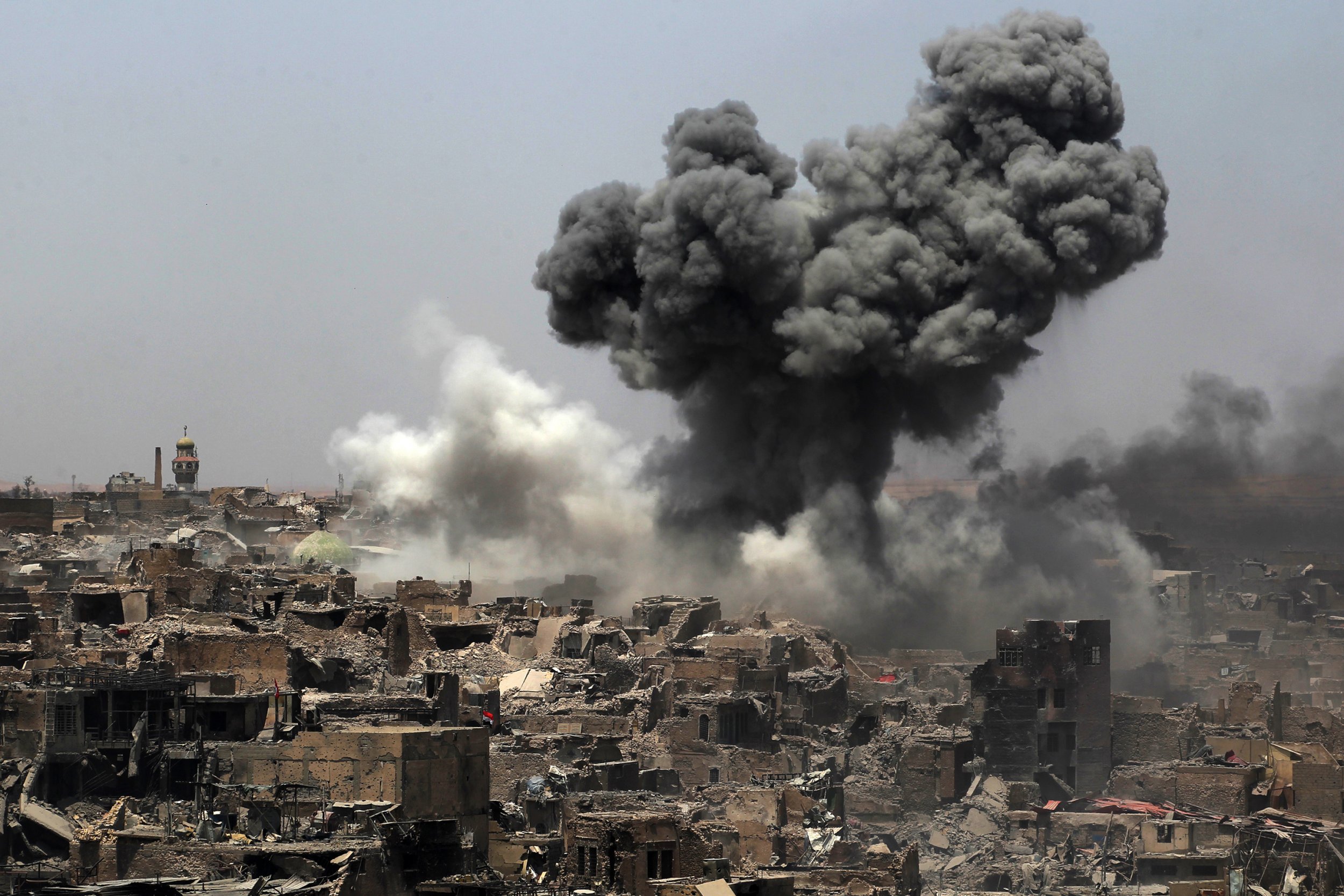
The U.S.-led coalition and its allies have wrestled almost a third of territory from the Islamic State militant group (ISIS) because of changes implemented by President Trump and his administration, a senior U.S. official said on Friday.
Brett McGurk, the special presidential envoy for the global coalition to defeat ISIS, in a briefing with reporters said that Trump's strategy in the battle against the jihadist group in Iraq and Syria had "dramatically accelerated" progress in the campaign.
"Nearly 30 percent of all the territory that has been retaken from ISIS—about 20,000 square kilometers—has actually happened in the last six months," he said.
Iraqi forces battling ISIS in northern Iraq last month declared victory in the northern city of Mosul after a nine-month slog in the intense and right urban landscape of Iraq's second city. Now, a Kurdish-Arab coalition known as the Syrian Democratic Forces has liberated almost half of the eastern Syrian city of Raqqa, the stronghold that acted as the group's de facto capital for more than three years and served as the site of the filmed executions of U.S. journalists James Foley and Stephen Sotloff.
"As you know, the campaign against Mosul is now finished and in Raqqa, which I'll talk to in more detail, about 45 percent of Raqqa is now cleared," he continued. "This is due to some key changes that were put in place very early on—three changes—initiatives from President Trump."
Listing them, the envoy said that the key factors were the Trump administration's delegation of key decision-making to battlefield commanders, the tactic of "annihilation" in which the ground forces surround the group in its stronghold so foreign fighters cannot escape, and drumming up support for burden-sharing among 73 members—69 countries and four international organizations—of the broad anti-ISIS coalition.
The campaign under Trump has witnessed the near fall of ISIS's territorial hold. The Obama administration laid the groundwork for both campaigns in Mosul and Raqqa but McGurk's assessment is that his successor's strategy is pushing the battle across the line.
There is some way to go, however, with ISIS moving much of its assets to the Euphrates River Valley in eastern Syria, according to U.S. intelligence, and the borderlands that split Iraq and Syria. The group remains in control of the majority of Deir Ezzor province, as well as the Syrian cities of Deir Ezzor and Mayadin. Thousands of the group's fighters and, some of its key leaders like self-declared caliph Abu Bakr al-Baghdadi, are believed to be alive and active in the region.
But, despite the success under Trump, rights groups have criticized the new strategy as having a deadlier impact on civilian life in ISIS-held territory. They have accused the coalition of using munitions loaded with white phosphorus in densely-populated areas and have criticized its strikes in areas where civilians are prominent.
One case in particular was a March 17 strike in western Mosul that killed more than 100 civilians. The coalition investigated the incident and concluded that ISIS had placed booby traps in the building that maximized the damage on impact.
In June, the Syrian Observatory for Human Rights, a U.K.-based monitoring group, said that U.S.-led coalition strikes had killed 472 civilians within a month in two Syrian provinces. It said the total was the highest for a single month since the bombing campaign began in 2014. The coalition does not specify which of its members' air forces conduct the strikes.
In spite of the criticism, McGurk reiterated the coalition defense that ISIS is using civilians as human shields and endangering their lives in a bid to deter the coalition and hold on to their key assets for a longer period of time.
"What's really happening in Raqqa—similar to what we saw in Mosul but on a smaller scale—the ISIS fighters on the ground are using these civilians as their own shields, as their own hostages," he said.
"They are using snipers to kill civilians who are trying to escape. They're trying to put suicide bombers in columns of displaced people as they try to get out—the similar tactics we've seen from this barbaric terrorist organization."
Uncommon Knowledge
Newsweek is committed to challenging conventional wisdom and finding connections in the search for common ground.
Newsweek is committed to challenging conventional wisdom and finding connections in the search for common ground.
About the writer
Jack is International Security and Terrorism Correspondent for Newsweek.
Email: j.moore@newsweek.com
Encrypted email: jfxm@protonmail.com
Available on Whatsapp, Signal, Wickr, Telegram, Viber.
Twitter: @JFXM
Instagram: Read more
To read how Newsweek uses AI as a newsroom tool, Click here.





